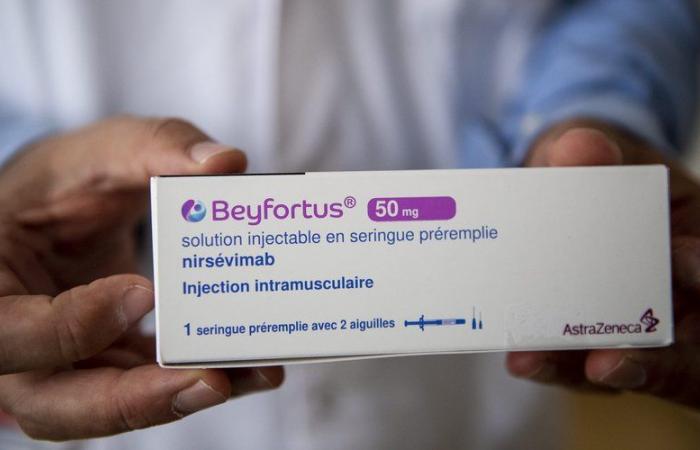
It is now official. Le Beyfortusintended to immunize babies against the main virus behind bronchiolitis is “very effective” to prevent serious infections in infants, confirms a large analysis published by the journal The Lancet Child & Adolescent Child This Friday, May 2.
Known as a “vaccine” against bronchiolitis, the beyfortus is not one, although its molecule, the nirsvimab, is injectable. On the other hand, it is nonetheless an effective treatment preventing the virus from infecting the organization, affirms the study unveiled this Friday, which reviews 27 investigations carried out during the 2023-2024 VRS season in five countries (France, Italy, Spain, United States Luxembourg).
More effective for infants three months old and more
Bronchiolitis, respiratory infection of small, very widespread and very contagious bronchi is generally without serious six months of life. But it can sometimes lead to emergencies and hospitalizations.
And good news for young parents: The Nirsevimab reduces the risk of hospitalization by 83 %81 % intensive care admissions and 75 % cases of lower respiratory tract infections in children 12 months and less, concluded the meta-analysis unveiled this Friday. In addition, the immunization provided by the treatment seemed more effective in preventing infants over 3 months (81 %) that of those of three months or less (76 %), observed the researchers.
A treatment reimbursed up to 30 %
The treatment is already available accessible and very often available on the waiting list. In addition, the pediatricians were worried, last year, the government’s decision to limit the reimbursement of the beyfortus (formerly fully compensated by the State), today compensated up to 30 %, The rest being borne by mutuals.
For comparison, many vaccines for children are reimbursed at 65 % and that against measles is entirely. The lower reimbursement of the Beyfortus stems from an assessment of the High Authority for Health (HAS), which qualified its medical service rendered as “moderate”.
Will this new study allow the HAS to update its opinion? The High Authority for Health had already, last year, recorded a clear drop in hospitalizations thanks to the Beyfortus. But it also noted a lack of convincing data on the heavier consequences to manage for hospitals, and in particular intensive care passages.





